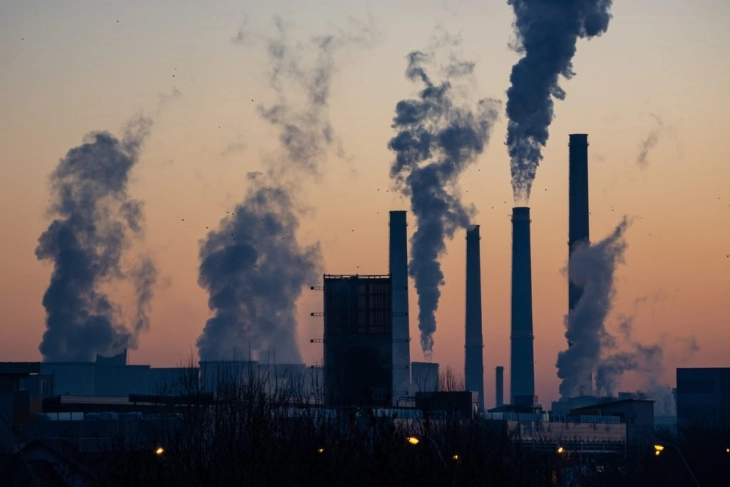UNICEF: 1 in 9 infant deaths in North Macedonia linked to air pollution
- In the lead up to International Day of Clean Air, UNICEF in Europe and Central Asia released a new policy brief highlighting that more than 5,480 infants in 23 countries and territories across Europe and Central Asia died from causes linked to air pollution in 2021. In North Macedonia, infant deaths linked to air pollution accounted for 11.6 per cent or 1 in 9 of all deaths of children under one, UNICEF Country Office in Skopje said in a press release.

Skopje, 10 September 2024 (MIA) - In the lead up to International Day of Clean Air, UNICEF in Europe and Central Asia released a new policy brief highlighting that more than 5,480 infants in 23 countries and territories across Europe and Central Asia died from causes linked to air pollution in 2021. In North Macedonia, infant deaths linked to air pollution accounted for 11.6 per cent or 1 in 9 of all deaths of children under one, UNICEF Country Office in Skopje said in a press release.
Breathless beginnings: policies to protect children from air pollution in Europe and Central Asia notes that in major cities across Europe and Central Asia, air pollution regularly exceeds levels considered safe by WHO, making it the leading environmental health risk for children across the region.
“In North Macedonia, the risks from air pollution are especially high. In February 2024, Skopje was once again among the top 10 polluted cities in the world, while PM10 or PM2.5 levels, on average, surpass the thresholds for more than 100 days annually. In addition to being a considerable cause of infant deaths, the new data shows that air pollution causes more healthy years of life lost than any other single environmental factor, including high temperatures, unsafe water and poor sanitation,” reads the press release.
“The data is particularly concerning because early and frequent exposure to air pollution affects babies’ developing brains, lungs, and organs, leading to lifelong health issues and impacts on learning,” said Lesley Miller, UNICEF Representative. “Children are not only facing a lifetime of climate chaos but are living it now. The illnesses and deaths caused by air pollution are preventable, but we need climate policies to be child sensitive. This includes policies that reduce pollutants and improve air quality where children live, play and learn.”
The policy brief notes that babies and young children are the most at risk of death and ill health. Early and frequent exposure to air pollution – including inside the womb – leads to a reduction and restructuring of their lungs and increases the risk of pneumonia, upper respiratory tract infections, ear infections, asthma, and allergies. Breathing polluted air can cause inflammation in the brain, hindering growth and affecting cognitive development, as well as learning outcomes.
UNICEF calls on governments and institutions in countries across the region – including in North Macedonia - to devote greater attention and resources to prevent worsening air pollution, support energy efficiency, access to clean energy, support improved air quality and protect pregnant women and children from exposure.
These recommendations include: ensuring air pollution and its health impacts on children are considered in National Determined Contributions (NDC), National Adaptation Plans (NAPs), national and local Air Quality Plans, and national Health Plans; establishing pollution-free zones near schools, kindergartens, and health facilities; setting up and maintaining air quality alert systems near residential areas, playgrounds, health facilities, kindergartens and schools, and reporting air quality information to the public.
Additional considerations should be given to improving air purification for all pregnant women in both the homes and the workplace. Furthermore, efforts to increase the coverage of pneumococcal conjugate vaccine (PCV) - which in North Macedonia is 56 per cent and much lower than the average of 86% in the WHO European region – can reduce the burden of bacterial pneumonia infections in infants, reads the press release.
New UNICEF policy brief outlines latest data and policy recommendations to improve air quality and curb air pollution-related deaths and poor health among children.
Photo: MIA archive







